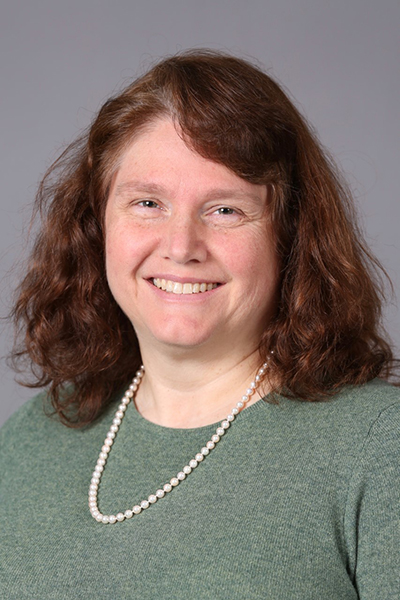 2022 NSF National Robotics Initiative - Foundational Research in Robotics Principal Investigators' Meeting
2022 NSF National Robotics Initiative - Foundational Research in Robotics Principal Investigators' Meeting
Welcome to the 2022 National Robotics Initiative and Foundational Research in Robotics Principal Investigators' Meeting. This year's meeting will be held virtually over three days from Tuesday, April 19 through Thursday, April 21, 2022.
The goal of the PI meeting is to assemble the community of researchers, industry representatives, non-governmental and non-profit organizations, and Government program managers who are actively engaged in the National Robotics Initiative (NRI) and the Foundational Research in Robotics (FRR) Program to review the progress, challenges, and future directions of NRI and FRR research and to provide an environment for PIs to showcase their research and to network.
The NRI program was launched during 2011 to achieve the following objectives:
- foster awareness and communication between NRI teams, many of whom employ complementary or competing approaches to related problems
- offer a forum for demonstrating and sharing best practices in education, technology transfer, and general outreach
- provide concentrated opportunities to share NRI successes with the media and other government agencies
- establish a centralized and lasting repository representing and illustrating the research ideas explored by and milestones achieved by NRI projects over the past year
The FRR program supports research on robotic systems that exhibit significant levels of both computational capability and physical complexity where intelligence is embodied in engineered constructs, with the ability to process information, sense, and move within or substantially alter their working environments.
 K E Y N O T E S P E A K E R S
K E Y N O T E S P E A K E R S 
 P R O G R A M C O - C H A I R S
P R O G R A M C O - C H A I R S 
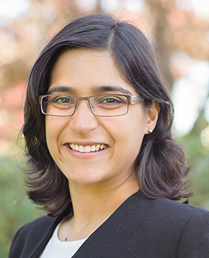 Marynel Vázquez is a computer scientist and roboticist. Her research focuses on understanding how to build interactive computing technologies that are meaningful, intuitive, and appropriate for users, especially in complex social environments. In particular, her research agenda centers on enabling social interactions between robots and multiple people. She creates systems that support these interactions and studies the intricacies of these encounters to understand how we can make robots better social actors. Marynel’s research crosses the boundaries between Human-Robot and Human-Computer Interaction, and often combines elements from robot perception, computer vision, machine learning, social science, and design. Marynel Vázquez is a computer scientist and roboticist. Her research focuses on understanding how to build interactive computing technologies that are meaningful, intuitive, and appropriate for users, especially in complex social environments. In particular, her research agenda centers on enabling social interactions between robots and multiple people. She creates systems that support these interactions and studies the intricacies of these encounters to understand how we can make robots better social actors. Marynel’s research crosses the boundaries between Human-Robot and Human-Computer Interaction, and often combines elements from robot perception, computer vision, machine learning, social science, and design. |
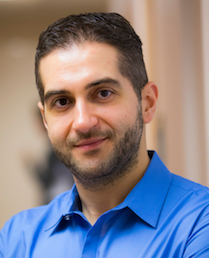 Kostas Bekris is originally from Greece, where he received a Bachelor’s degree in Computer Science from the University of Crete in 2001. He then completed both his Master’s (2004) and Doctoral (2008) degrees in Computer Science at Rice University in Houston, Texas under the supervision of Prof. Lydia Kavraki. The title of his Ph.D. thesis was Informed Planning and Safe Distributed Replanning under Physical Constraints. On July 2008 Kostas joined the Department of Computer Science and Engineering at the University of Nevada, Reno (UNR) as an Assistant Professor. On July 2012 he moved to Rutgers University and joined the Computer Science department as an Assistant Professor. Since July 2016, he has served as Associate Professor in the same department. Kostas Bekris is originally from Greece, where he received a Bachelor’s degree in Computer Science from the University of Crete in 2001. He then completed both his Master’s (2004) and Doctoral (2008) degrees in Computer Science at Rice University in Houston, Texas under the supervision of Prof. Lydia Kavraki. The title of his Ph.D. thesis was Informed Planning and Safe Distributed Replanning under Physical Constraints. On July 2008 Kostas joined the Department of Computer Science and Engineering at the University of Nevada, Reno (UNR) as an Assistant Professor. On July 2012 he moved to Rutgers University and joined the Computer Science department as an Assistant Professor. Since July 2016, he has served as Associate Professor in the same department. |
 N S F L E A D N R I - F R R P R O G R A M D I R E C T O R S
N S F L E A D N R I - F R R P R O G R A M D I R E C T O R S 
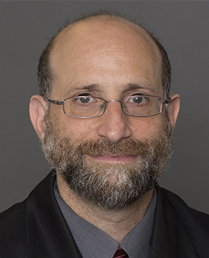 Juan Wachs is a Professor and Faculty Scholar in the Industrial Engineering School at Purdue University, Professor of Biomedical Engineering (by courtesy) and an Adjunct Associate Professor of Surgery at IU School of Medicine. He is currently serving at NSF as a Program Director for robotics and AI programs at CISE. He is also the director of the Intelligent Systems and Assistive Technologies (ISAT) Lab at Purdue, and he is affiliated with the Regenstrief Center for Healthcare Engineering. He completed postdoctoral training at the Naval Postgraduate School’s MOVES Institute under a National Research Council Fellowship from the National Academies of Sciences. Dr. Wachs received his B.Ed.Tech in Electrical Education in ORT Academic College, at the Hebrew University of Jerusalem campus and his M.Sc and Ph.D in Industrial Engineering and Management from the Ben-Gurion University of the Negev, Israel. He is the Associate Editor of IEEE Transactions in Human-Machine Systems, Frontiers in Robotics and AI. Juan Wachs is a Professor and Faculty Scholar in the Industrial Engineering School at Purdue University, Professor of Biomedical Engineering (by courtesy) and an Adjunct Associate Professor of Surgery at IU School of Medicine. He is currently serving at NSF as a Program Director for robotics and AI programs at CISE. He is also the director of the Intelligent Systems and Assistive Technologies (ISAT) Lab at Purdue, and he is affiliated with the Regenstrief Center for Healthcare Engineering. He completed postdoctoral training at the Naval Postgraduate School’s MOVES Institute under a National Research Council Fellowship from the National Academies of Sciences. Dr. Wachs received his B.Ed.Tech in Electrical Education in ORT Academic College, at the Hebrew University of Jerusalem campus and his M.Sc and Ph.D in Industrial Engineering and Management from the Ben-Gurion University of the Negev, Israel. He is the Associate Editor of IEEE Transactions in Human-Machine Systems, Frontiers in Robotics and AI. |
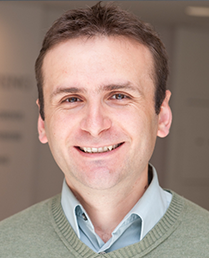 Erion Plaku is a Program Director at the National Science Foundation in the Directorate for Computer and Information Science and Engineering (CISE), Division of Information and Intelligent Systems (IIS). Dr. Plaku manages programs in Robust Intelligence, Foundational Research in Robotics, National Robotics Initiative, and National Artificial Intelligence Research Institutes. Dr. Plaku is serving a rotation at NSF from George Mason University, where he is an Associate Professor in the Department of Computer Science. His research is on Robotics and AI, focusing on enhancing robot autonomy and human-robot collaborations. Dr. Plaku received his Ph.D. degree in Computer Science from Rice University in 2008 and was a Postdoctoral Fellow at Johns Hopkins University. More information, including publications and research projects, can be found at http://robotmotionplanning.org Erion Plaku is a Program Director at the National Science Foundation in the Directorate for Computer and Information Science and Engineering (CISE), Division of Information and Intelligent Systems (IIS). Dr. Plaku manages programs in Robust Intelligence, Foundational Research in Robotics, National Robotics Initiative, and National Artificial Intelligence Research Institutes. Dr. Plaku is serving a rotation at NSF from George Mason University, where he is an Associate Professor in the Department of Computer Science. His research is on Robotics and AI, focusing on enhancing robot autonomy and human-robot collaborations. Dr. Plaku received his Ph.D. degree in Computer Science from Rice University in 2008 and was a Postdoctoral Fellow at Johns Hopkins University. More information, including publications and research projects, can be found at http://robotmotionplanning.org |

|
O R G A N I Z E R S Frankie King (Vanderbilt University) |
N R I - F R R S P O N S O R A G E N C I E S |
|
 |
National Science Foundation (NSF) | |
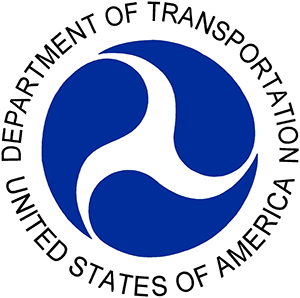 |
Federal Highway Administration (FHWA-DOT) | |
 |
National Aeronautics and Space Administration (NASA) | |
 |
National Institutes of Health (NIH) | |
 |
The National Institute for Occupational Safety and Health (NIOSH) | |
 |
National Institute of Food and Agriculture (NIFA-USDA) | |
| United States Navy | ||

